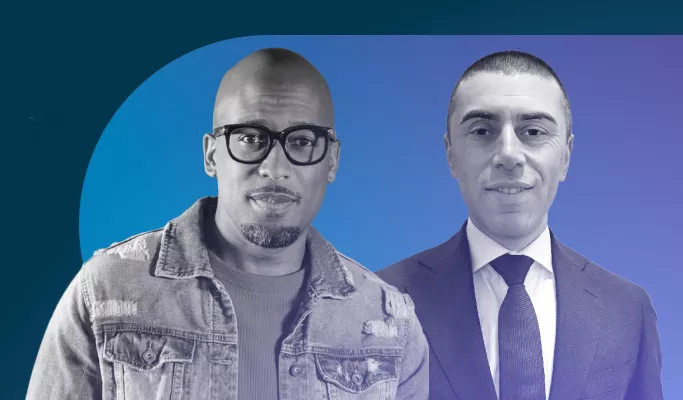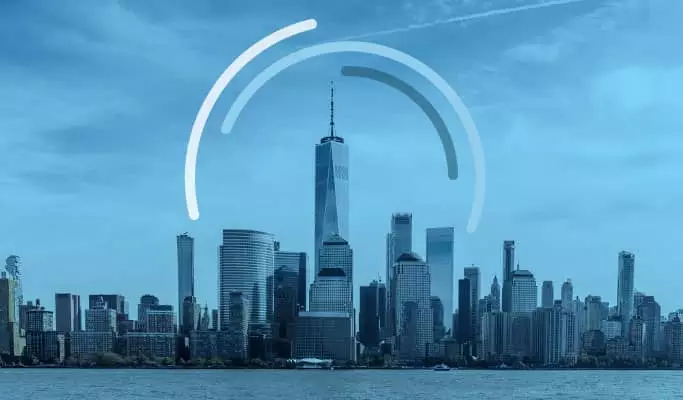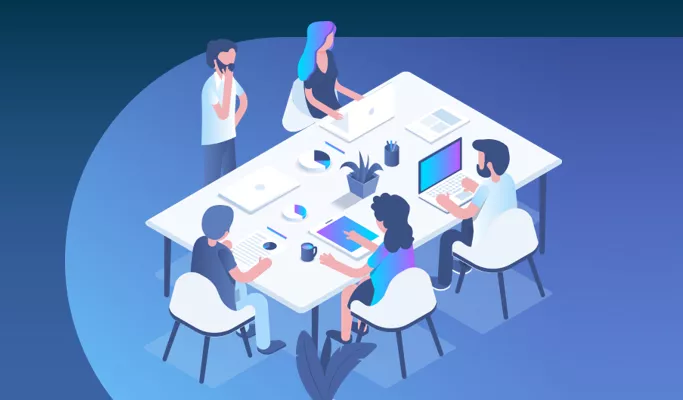Busy professionals may develop narrow views of work and the world as they focus on projects, tasks, and tight deadlines. This myopia may have become especially acute as the pandemic has forced social isolation with extended remote work. Even with the usual online meetings and phone calls, people can lose connections with colleagues.
However, we are all part of a larger community that benefits from improving human interaction and connectivity as well as communication. B2B Soft’s COO Oleg Kleyman and Jesse Jones, a Canadian television host and brand specialist, dove into this topic in a recent company Town Hall.
At the event, both speakers highlighted how we need to be able to see ourselves in a connected world beyond the digital environment and beyond our immediate universe. This often involves understanding what we do daily, in both our professional and personal lives and how that can impact the people around us in direct and indirect ways.
“Bridging the connectivity gap impacts not only the company and employees but also partners and customers,” Kleyman said.
Building on this idea, Jesse said, “Ideas and energy should be shared because people want to be part of a larger process.”
The Town Hall identified three ways to engage people in that larger process – Invite people in your process, be fluid and open in relationships and engage with people and cultures who are different from you because you will always learn something, both about them and yourself in the process.
1 – Invite people into your process.
Do not be afraid to allow a “peek behind the curtain”! It is easy to build connections by inviting others into your process. For example, B2B Soft is composed of experts, whether that is Customer Service, Quality Assurance, Business Analysis, Software Development, or Finance. You can facilitate team building by letting other people understand your work. Tell them about your constraints and how they relate to their work.
“Someone in any of these groups may be working on something and they get disrupted by an email request or Skype meeting. Someone may need something immediately and the first reaction might be ‘I can’t do that.’ But if the person requesting the information knew more about the time constraints you have with your work, it would help them understand your response better. And then you can work out a solution that meets their needs and yours.”
Openness is a good guide, and each person has an opportunity, which can vary depending on their profession. Jesse’s branding company provides one model. His studio is on the ground level in Toronto, Canada. Whether he is in a meeting with his producer or client or filming an episode of a show, people from the outside can peek in. They can even hear what is going on when the company pipes its brainstorming session out onto the street.
“In our world opening people to the process is critical because it brings them along for the ride,” Jones said. “This is true whether they are actively or passively participating or just witnessing what is happening. The important word is experiential. The process allows them to see and hear what we are considering in our work. In our case, we directly deal with the public, and our branding work involves them. We want them to engage with us. This is one way in which we invite people into our process.”
2 – Be fluid and open in your relationships.
Relationships should not only be based on your immediate needs. This “transactional” approach does not allow for enough personal dimensions for the relationship to develop. We are not buying and selling connectivity. We are engaging people in a fluid and open way. Conversation is a critical tool for us and a skill that we frequently need to develop.
“If you have a free moment, it’s good to catch up with your colleagues and get the context of what they’re doing,” Kleyman said. “The next time you need to work together that bridge will be there.”
Jones suggested that individuals enrich their environment with the concept of seeding. With this, an individual plants seeds around themselves. Not every seed will bloom, but not every seed needs to bloom right away. The objective is to plant seeds of positivity and goodness in the way we approach the world around us. Those seeds serve as a potential for the future, whether we are there to reap the growth or not. Someone will, even if it is not us. And we will reap others during our ongoing journeys.
“Engage people – allocate time to talk to people without the expectation of an immediate result,” Jones said. “Not every seed needs to blossom into something concrete. But with enough seeds and time, the process can yield good things. No matter where you are in the world, if you are making a step to say ‘hey, tell me what it is you’re doing in your day because we work together a lot,’ then that’s a seed planted.”
Kleyman agreed, saying “Jesse and I met each other long ago. Recently we reconnected and found an immediate ability to work together. And that is often the direct result of maintaining connections. This is far more satisfying than transactional relationships, where you only interact with someone when you need something.”
These benefits can also apply to people outside of your network, too.
“If you are in the technology/software business, you might think that only people in that realm can relate,” Kleyman said. “Make the effort and you’ll see that isn’t true.”
3 – Engage with people and cultures who are different from you because you will always learn something, both about them and yourself in the process.
We are all engaged in lifelong learning and that means we need to learn how to embrace the cultures around us. This is not a matter of following trends, but part of a disciplined learning process that has enormous benefits.
“My business helps corporations connect to multicultural communities nationally and abroad,” said Jones. “Our approach is based on understanding the communities we’re marketing to as we look for the best fit for our clients and their brands. We practice this every day, and it is something companies in telecom can do as well. Truly make it a desire to listen.”
Jones relayed a story during the Town Hall about how culture and context can be critical to business outcomes. As a brand manager early in his career, he was aware that an up-and-coming sports figure could be an important asset to the company, particularly in a sponsorship role. The firm however did not understand the culture and the context, so passed on the opportunity. The sports figure went on to become an enormous success on the global stage. This was a key moment for Jesse to lay the foundations for his future branding and culture work.
This story resonated during the Town Hall. Kleyman said, “the best ideas come from within our teams who have amazing ideas. We encourage everyone to learn from the story and bring forward opportunities to us without being concerned that their idea is too radical or “ahead of the time.” And if it involves learning new social or cultural aspects – then we do it together!”
About Jesse Jones
Jesse Jones is the host of Bachelor in Paradise Canada, based on the wildly successful Bachelor franchise started in the US and seen around the world.
Jones is a brand specialist at Jones & Jones Group, a content and branding agency founded in 1987 by Denise Jones and Allan Jones, Jesse’s parents. Jones & Jones helps global brands and companies connect to multicultural communities nationally and abroad. Their mission is to ensure that a company’s communications and marketing programs operate with sensitivity to the ever-changing and diverse worlds that exist outside of their window.



